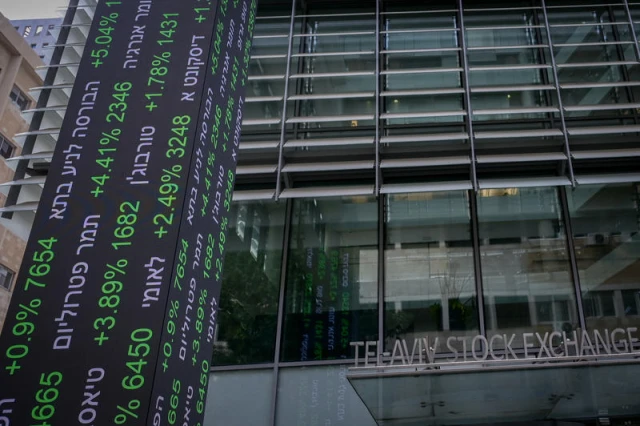Tel Aviv Stock Exchange soars after hostage deal and Gaza ceasefire

The Tel Aviv Stock Exchange soared after the hostage agreement and the end of the Gaza war. The Israeli stock exchange is not only recovering but has made significant gains during the past two years of war. One hundred forty-one Tel Aviv stocks have doubled in value since the Oct. 7, 2023, attack.
Despite the war, the Tel Aviv Stock Exchange has been placed among the top Western exchanges. The TA-125 index has returned 81% in the past two years compared to 56.7% for the U.S. S&P 500 and 71.5% for the tech-focused Nasdaq exchange. Analysts believe that the Israeli stock exchange could soar even further if diplomatic relations are normalized between Israel and Saudi Arabia.
Yotav Kostika, CEO of the mutual-fund company at Mor Investment House, told the Israeli business news outlet Calcalist that “this year’s performance at the Tel Aviv Stock Exchange have been phenomenal, and the question mark around a deal was one last thing that clouded investors, and now it’s going ahead. At this point there are additional elements that could push the stock market forward. The big, real story lies in the possibilities of expanding the Abraham Accords. If that happens, it would be a breakthrough and could bring prosperity,” he explained.
“Many eyes will focus on the composition of the next government, and that will occupy investors, but there are still several months until we reach that,” Kostika continued.
“Certainly short-term profit taking could happen in the Tel Aviv market – for example in the defense sector, which has become a new elite industry in this war,” he assessed.
Modi Shafrir, the chief market-strategy officer at Bank Hapoalim, echoed similar optimism about the Israeli stock exchange and its future potential.
“The local market is still not pricing in the potential normalization with Saudi Arabia. So there remain positive scenarios that could materialize and support further price increases. Unfortunately the Middle East tends to deteriorate, but this time there is a higher chance that things will go well. If the war truly ends, there is clear reason for upward movement,” Shafrir predicted.
Yuval Beer Even who heads the institutional investments at Migdal Insurance, is more cautious in his assessment of the Israeli stock market.
“Until now the market was assuming there would be a deal, and priced that in at about 70-80 percent likelihood; now that we have certainty it helps. I don’t think we’ll see rises as strong as those we’ve seen so far, but certainly there is room for more gains in the Israeli market. The phenomena here look positive, so this is not a time to sell.”
Last month, the Tel Aviv Stock Exchange responded positively after U.S. President Donald Trump unveiled his 21-point plan to end the war in Gaza.
“The market understands what the end of the war means for the Israeli economy, the real estate industry, and the interest rate environment in the economy,” Yaniv Pagot, TASE's VP of Trading, stated at the time.
Lior Yochpaz, chief investment officer at the Israeli insurance and pension group Menora Mivtachim, assessed that the Gaza ceasefire will result in lower interest rates in Israel.
“The ceasefire will let the Bank of Israel lower interest rates, also because global markets will no longer demand the risk premium they currently insist on for Israeli government bonds. The market is currently pricing in a rate of 3.5 percent, and that makes a lot of sense. We’ll see postwar growth – real interest of 1.5 percent is very high, so there is plenty of room for cuts,” Yochpaz explained.
However, looking ahead, he predicts that it will take time before the lower interest rates are truly felt in real-estate and other sectors of the Israeli economy.
“Real estate is a function of interest rates and the sector may indeed recover. But let’s say foreign investors return to the Tel Aviv market more robustly – they are likely to favor financials, not real estate. Just as it took time for rising interest rates to be felt in credit costs, it’ll take time for lower rates to be felt in the economy,” he explained.

The All Israel News Staff is a team of journalists in Israel.
You might also like to read this:











